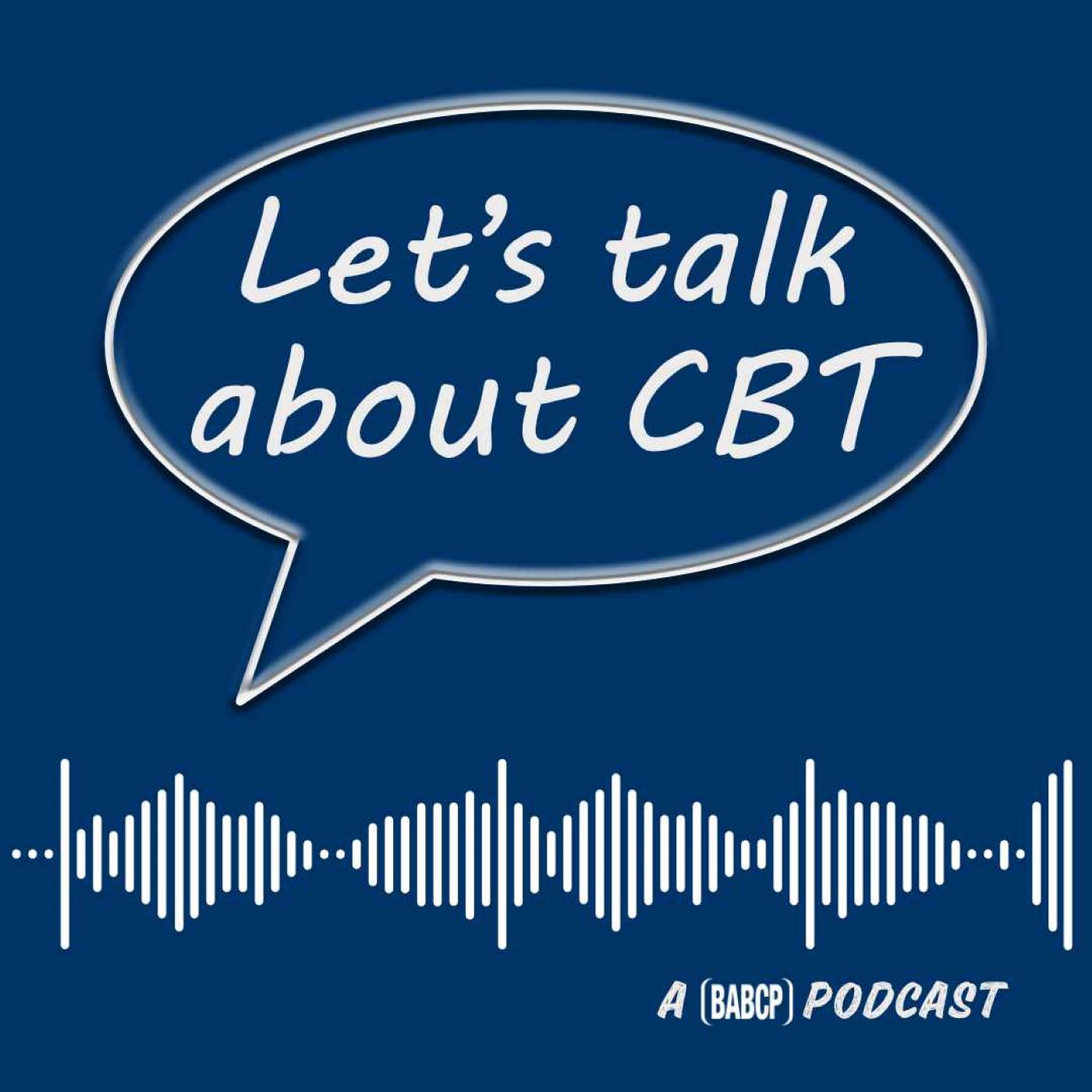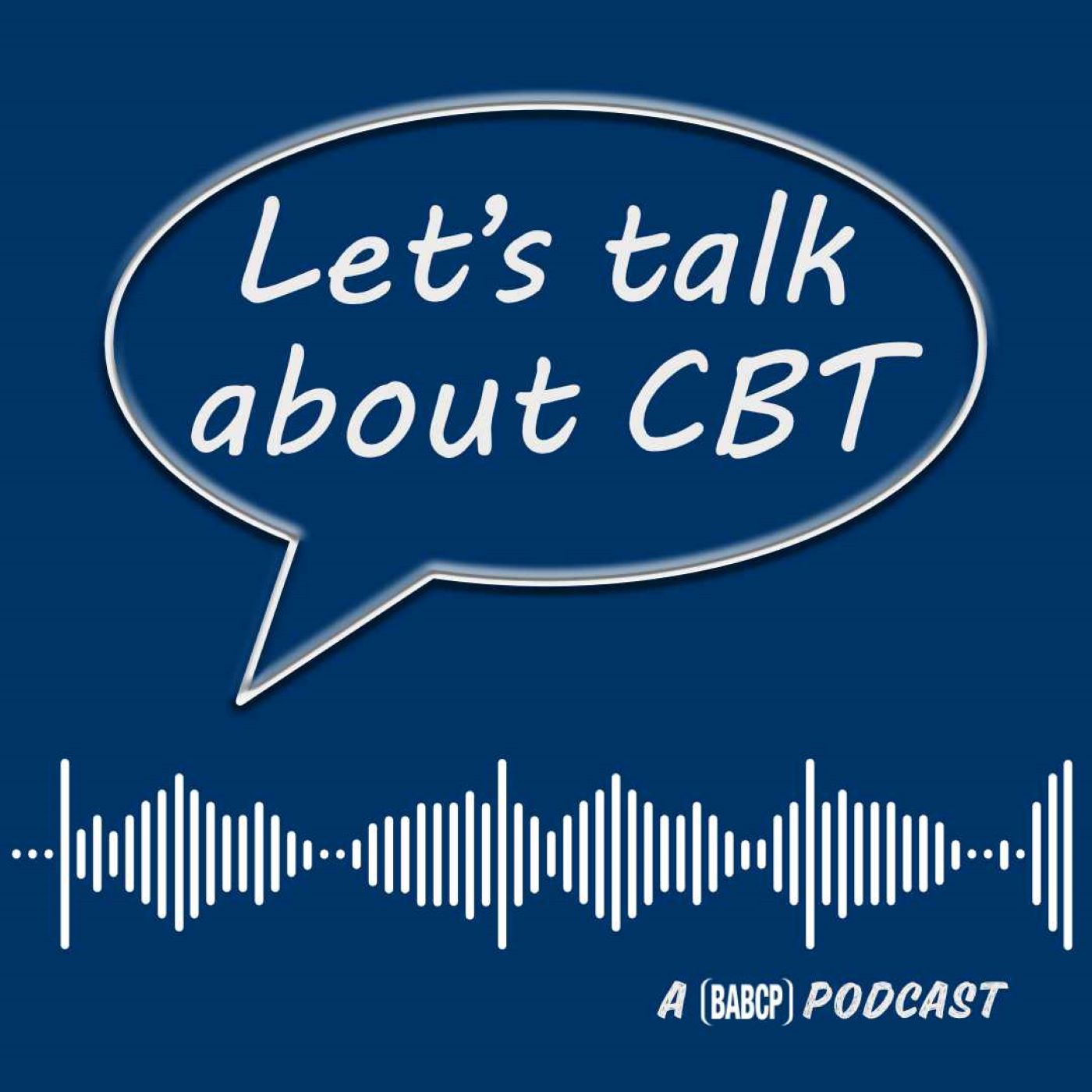Let’s talk about…Low Intensity CBT
Description
Ever heard of low Intensity CBT and wondered what it was all about? Or what it would be like to receive it? In this episode of Let’s Talk about CBT, Helen talks to Laura Stevenson-Young, a cognitive behavioural therapist and Director of Low Intensity CBT Clinical Training at Newcastle University and Emily who shares her lived experience of low intensity cognitive behavioural therapy. Together, they explore what low intensity CBT is, what it’s like to receive it, and how it can empower people to take control of their mental health.
Emily talks candidly about the challenges that led her to seek help, including grief, anxiety, fertility concerns and low self-esteem. She describes the impact of low intensity CBT on her life, and the practical tools she still uses today. Laura explains how this type of therapy works, who it’s for, and why it can be so effective.
Resources & Support
Find an NHS Talking Therapies service: https://www.nhs.uk/nhs-services/mental-health-services/find-nhs-talking-therapies-for-anxiety-and-depression/
More about CBT and BABCP: https://www.babcp.com
Find our sister podcasts and all our other episodes in our podcast hub here: https://babcp.com/Podcasts
Have feedback? Email us at podcasts@babcp.com
Follow us on Instagram & Bluesky: @BABCPpodcasts
Credits:
Music is Autmn Coffee by Bosnow from Uppbeat
Music from #Uppbeat (free for Creators!): https://uppbeat.io/t/bosnow/autumn-coffee
License code: 3F32NRBYH67P5MIF
This episode was produced by Steph Curnow
Transcript:
Helen: Hello, and welcome to Let's Talk About CBT, the podcast where we talk about cognitive and behavioural psychotherapies, what they are, what they can do, and what they can't. I'm Helen Macdonald, your host. I'm the Senior Clinical Advisor for the British Association for Behavioural and Cognitive Psychotherapies.
Hello and welcome. Today, I've got Emily and Laura with me and we're going to be talking about low intensity CBT, what that is and what it's like to be on the receiving end. But first, I'm going to ask you both to introduce yourselves. Emily?
Emily: Hi, yeah, thank you for having me. I'm Emily, I live in Yorkshire with my fiancé. And in November 2022, I reached out to my local mental health service for a number of reasons, which I'm sure we'll cover in this podcast. I began with a four-week introduction to CBT program, which was in a group setting online. That was in December. And then by January, I began my CBT therapy and yeah, it was one of the best things I've done.
Helen: Thanks, Emily. And Laura.
Laura: Hi, Helen. Thanks for having us and Emily. So, I'm Laura Stevenson-Young. I'm a cognitive behavioral therapist and Director of Low Intensity CBT Clinical Training at Newcastle University. So this means that I train practitioners to deliver low intensity CBT interventions for many different types of mental health problems, namely depression and low mood, generalized anxiety disorder, panic, OCD and some other problems that can really affect the quality of people's lives such as stress or sleep difficulties and long-term health conditions. So I trained as a low intensity CBT therapist, mostly known as a Psychological Wellbeing Practitioner or PWP for short, well over a decade ago. And I then went on to further CBT training and became a clinical trainer in low intensity CBT. So this is probably really going to come out today, but I'm a real advocate for low intensity CBT, the practitioners who deliver it. I'm so passionate about the work that they do and how they empower people to manage their own mental health within NHS Talking Therapies.
Helen: Thanks Laura. So Emily, you said there were a number of things that led to you reaching out to the local mental health services. And I wonder if you're willing to tell us a bit more about what was going on?
Emily: Yeah, of course. Yeah. I mean, kind of looking back, I should have done it a lot earlier than I did. It was kind of a lot of things building up over probably a couple of years. My mood definitely was low after losing my granddad and then with different job roles, kind of things to do with that, it was an ongoing thing. And then in 2022, that's when I'd gained a lot of weight, I was losing a lot of confidence, and I was letting a lot of stress at work get on top of me, which then had an impact on my relationship. And then obviously we were just coming out of lockdown as well. So I think that had a massive impact on my mental health. It was definitely, there was a lot of low mood and also anxiety around all I wanted to do was see friends and family, but the thought of doing that was actually making me incredibly anxious and busy places were making me anxious, new surroundings were causing kind of panic attacks. We'd gone on a trip and we were getting on a plane kind of in 2022 and I had a full panic attack getting on the plane. And there was nothing within my brain that was pinpointing what exactly it was. But I think...overriding the kind of that sadness and that anxiety there was a lot, it was around, I looked in my notes when I knew that we were doing this podcast and on the 12th of January I'd written in my notes as I was about to start my CBT I'm scared because I might not have control over what the future will bring and that might in my head was asserting so health wise I'd had some news regarding I was diagnosed with PCOS and an underactive thyroid, which both have a big impact on fertility and kind of me and my partner were trying to conceive and every single month it was like you were failing at being a woman really because it wasn't happening for us. That’s still an ongoing thing now, that's not kind of changed but my mindset has changed off the back of...having CBT and I kind of went into counselling after that as well. And my mindset then has started now. I'm learning to deal with different things in a more logical way instead of going with them thoughts and thinking that that's it kind of thing, if that makes sense.
Helen: Thanks, Emily. And it sounds like there was a combination of all sorts of really difficult things going on. I mean, you've talked about your physical health, you've talked about what was going through your mind, you were talking about the way that you were feeling. There's an awful lot that was going on for you there. And thank you for sharing that with us. And I'm just sort of really curious to hear about what it was actually like having that low intensity CBT? I'm going to come back to Laura and ask her to explain a bit more about what that really means. But from your experience of being on the receiving end, what was it like?
Emily: Yeah, I think it's so, you're thinking ahead and a lot of my thoughts was always, I kept thinking, I shouldn't be doing this, I'm taking that away from someone else who needs this more than me. I could go and talk to my friends and family about this, of how I was really feeling or my partner, even. And there's only so much I think that you're comfortable to open up and tell your friends and family and speak about and but actually talking through everything and kind of making them thoughts in my head a lot more logical and combating them unhelpful thinking styles that I was doing, what just helped me so much and kind of rationalizing everything in my brain. And I think with my CBT therapist, she spoke a lot about negative automatic thoughts with me. It's every time there was something that was happening my immediate thought was the complete, the most negative response to it. So combatting that was a big thing for me and speaking about that.
Helen: Thanks, Emily. And I mean, if I can just come to Laura now, Emily's just spoken really clearly about lots of stuff to do with thinking, negative automatic thoughts, thinking logically and so on. Can you say a bit more about that from the perspective of somebody who delivered those kind of interventions? Why is that helpful? What's that about?
Laura: Hmm, it's a good question I guess. So in Emily's case the therapist was working with her on how she was thinking about herself and her difficulties and there lots of ways to work with thinking and negative thoughts in CBT. So you can work on the content of thinking, what our thoughts actually are and what they're saying or the process of thinking which is how we engage with the process of those thoughts. And I guess the most common way a low intensity therapist will engage with negative thoughts, particularly in low mo


















